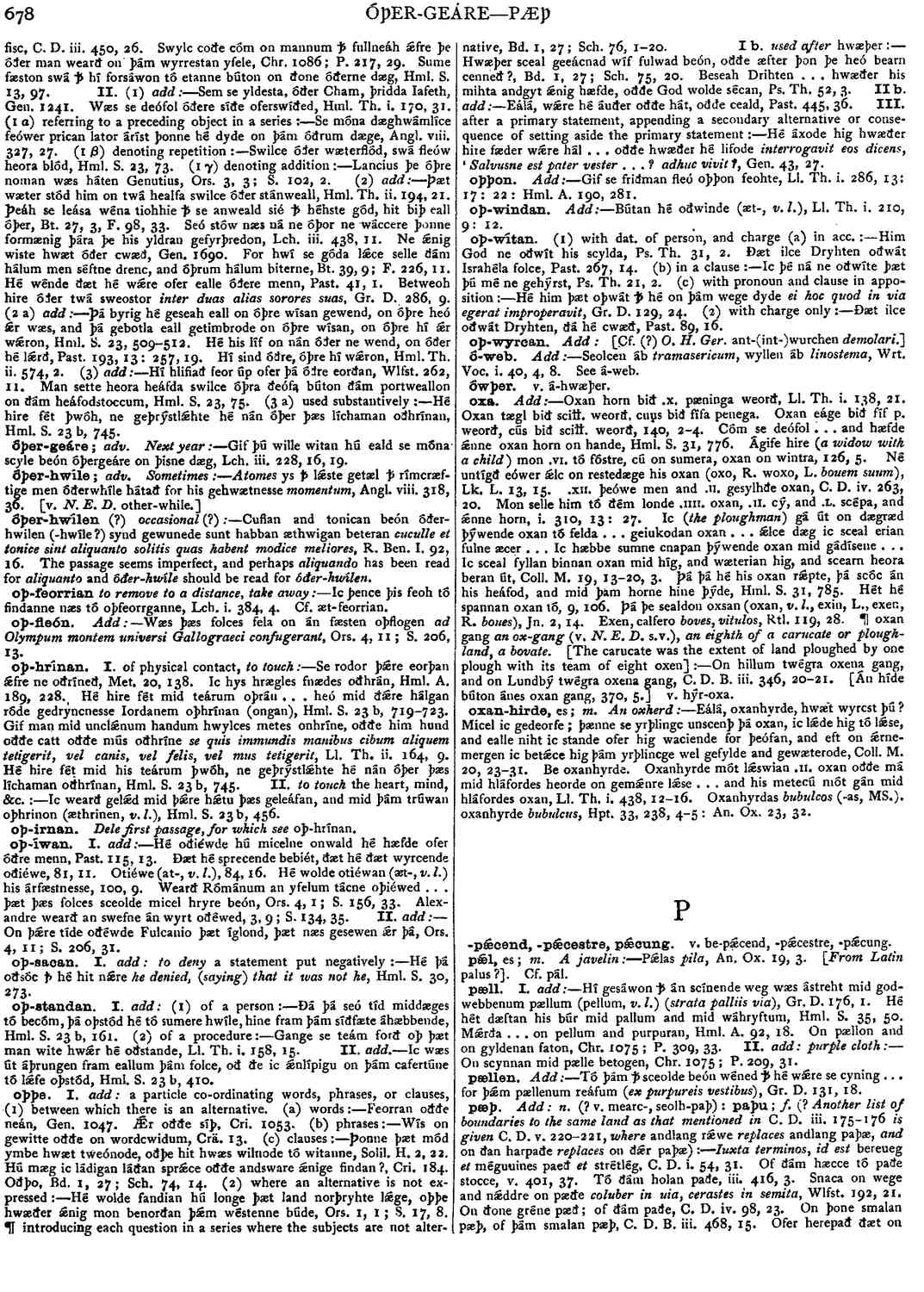oxa
-
Oxan horn bið .x. pæninga weorð,
- Ll. Th. i. 138, 21.
-
Oxan tægl bið sciłł. weorð, cuus bið fífa penega. Oxan eáge bið fíf p. weorð, cús bið sciłł. weorð,
- 140, 2-4.
-
Cóm se deófol. . . and hæfde ǽnne oxan horn on hande,
- Hml. S. 31, 776.
-
Ágife hire (
a widow with a child
) mon .vi. tó fóstre, cú on sumera, oxan on wintra,- 126, 5.
-
Né untígð eówer ǽlc on restedæge his oxan (oxo, R. woxo, L.
bouuem suum),
- Lk. L. 13, 15. .xii.
- Mon selle him tó ðém londe .iiii. oxan, .ii. cý, and .L. scépa, and ǽnne horn, i. 310, 13: 27.
-
Ic (
the ploughman)
gá út on dægræd þýwende oxan tó felda . . . geiukodan oxan . . . ǽlce dæg ic sceal erian fulne æcer . . . Ic hæbbe sumne cnapan þýwende oxan mid gádísene . . . Ic sceal fyllan binnan oxan mid híg, and wæterian hig, and scearn heora beran út,- Coll. M. 19, 13-20, 3.
-
Þá þá hé his oxan rǽpte, þá scóc án his heáfod, and mid þám horne hine þýde,
- Hml. S. 31, 785.
-
Hét hé spannan oxan tó,
- 9, 106.
-
Þá þe sealdon oxsan (oxan,
v. l., exin, L., exen, R. boues ),
- Jn. 2, 14.
-
Exen, calfero boves, vitulos, Rtl. 119, 28. ¶ oxan gang an ox-gang (v. N. E. D. s. v.),
an eighth of a carucate or plough-land, a bovate.
[The carucate was the extent of land ploughed by one plough with its team of eight oxen] :-- On hillum twégra oxena gang, and on Lundbý twégra oxena gang, C. D. B. iii. 346, 20-21.
Bosworth, Joseph. “oxa.” In An Anglo-Saxon Dictionary Online, edited by Thomas Northcote Toller, Christ Sean, and Ondřej Tichy. Prague: Faculty of Arts, Charles University, 2014. https://bosworthtoller.com/56840.
Checked: 0